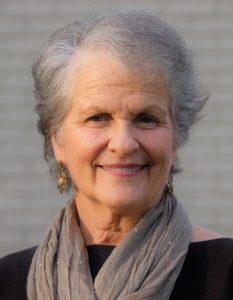By BARBARA MARTIN
Q: After my honeymoon, I don’t feel all that great about being married. Is this normal?
Most of us seek a deep fulfillment in marriage. I wanted my husband to be intermingled with me in a wonderful place of mutual support, shared dreams, and a deep bond of tenderness and compassion. The wedding seemed to be the promise of enduring happiness, and most of us reveled in the anticipation of it all.
Here is the sadness, though: The wedding, at times, rather than the relationship, represents the high point of the marriage. Once the ceremony is over, couples can begin a slow slide into disappointment and mediocrity. Disenchantment, the “end of the honeymoon,” is common. But the depth of this disenchantment in our time is increasing.
There is this belief that, if we find our soulmate, everything wrong with us will be healed. In essence, we are making our lover into God, and no human alive can live up to that. In most modern relationships, people are looking for a spouse who will make their life more interesting and help them attain their goals. Marriage used to be about “us,” but it is now more about “me.” When this happens, there is an unrealistic expectation that can be crushing for a couple entering marriage.
Here is an interesting truth: God hasn’t designed marriage to meet our personal needs. Your perfect spouse will not complete you.
I remember the euphoria I felt anticipating my wedding and honeymoon, but then my husband and I came home, and the reality of life was mundane. Getting up in the morning, drinking coffee, going to work, coming home, making dinner, trying to visit after dinner, and then going to bed, only to do the same thing the next day. My love for my husband became a bit more difficult. The saying that “love shouldn’t be this hard; it should come more naturally” became true for me. The man I’d married, at times, seemed like a stranger. I was having to make changes in life that I didn’t want to make, and so was he.
Duke University professor Stanley Hauer said, “We never know whom we marry; we just think we do. Or even if we first marry the right person, just give it awhile and he or she will change. For marriage, being the enormous thing it is means we are not the same person after we have entered it. The primary problem is … learning how to love and care for the stranger to whom you find yourself married.”
Ephesians 5:31-32 says, “A man shall leave his father and his mother and be united to his wife, and the two shall become one flesh. This is a profound mystery…” What is this mystery? Paul goes on to say, “I am saying that it refers to Christ and the church.” Earlier, in verse 25, Paul says, “Husbands, love your wives as Christ loves the church and gave Himself up for her.” Jesus gave Himself up for us. He became a servant. He gave up His own interests and looked to our needs instead.
In his book “The Meaning of Marriage,” Tim Keller says, “So what do you need to make a marriage work? You need to know the secret, the gospel, and how it gives you both the power and the pattern for your marriage. On the one hand, the experience of marriage will unveil the beauty and depths of the gospel to you. It will drive you further into the reliance on it. On the other hand, a greater understanding of the gospel will help you experience deeper and deeper union with each other as the years go on.”
Your hopes of an enduring union are not futile; your dreams of an increasing marital bond are not beyond the realm of possibility. Marriage can be rewarding, but it will take work and commitment. The hard times of marriage can drive us to experience more of God. If we allow the gospel to become real to us, it can free us to see our spouse’s sins and flaws, not cover them over. To speak of them, yet still fully love and accept our spouse.
There can be deep issues that impact a marriage, even soon after the honeymoon. There are ways to deal with these issues that will sometimes involve difficult work. But if habits of sacrificial love can be established, the “secret” of the gospel can come to life in your marriage.

Barbara Martin, LPC, LMFT, is an adjunct professor at Reformed Theological Seminary in Jackson and the emotional care consultant for Mission to North America, a branch of the Presbyterian Church in America (PCA). She has a private practice in Ridgeland, has been married to Hal for 45 years, and has three sons and five grandchildren.